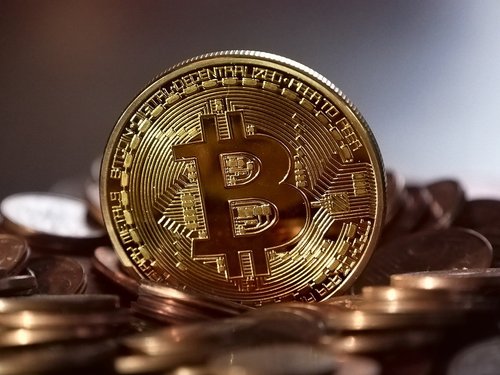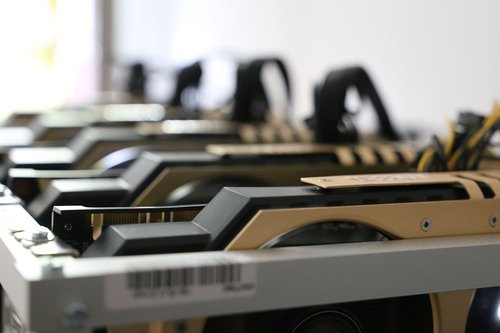What is Bitcoin?
Hard to miss in recent months: Bitcoin is on everyone's lips and in all columns Tech sites. But do you know what exactly it is? How it works ? What are the issues ? All of these questions that you probably ask yourself will find an answer in this file.
The history of Bitcoin
The term Bitcoin first appeared in 2008. It is the junction of two English words: bit which designates the binary unit in computer science and coin which means "coin". Satoshi Nakamoto is the inventor.

This man - or woman - is also very mysterious, since nobody knows his true identity. This name would be a pseudonym, some rumors even claiming that it hides a group of developers and hackers - even Elon Musk himself! Anyway, 2009 sees the publication of the source code of the cryptocurrency, visible by everyone on the net. In 2012, the Bitcoin Foundation is created.
For the anecdote, Satoshi Nakamoto, whoever he may be, would own a million bitcoins. Knowing that the value of this virtual currency is estimated at just over € 11,500 at the time of writing this file, this mysterious inventor would be at the head of a fortune of not less than 11 billion euros ! A nice bonanza that would place him in the 44th place of the most fortunate people in the world.
How bitcoin works
Bitcoin is a so-called digital currency, thus opposing the classic physical currency found in the form of notes or coins. If digital transactions have existed for a long time with bank cards or transfers, bitcoin brings a new novelty that is its strength: it is decentralized.
The interest for the user is that it can do without banks and other financial organizations. The transactions are made directly between him and another user, regardless of his location in the world. Pretty practical, right? Bitcoin is a payment method like any other, accepted by more and more platforms around the world.
This cryptocurrency works - and is created - using software and protocols. All are free, their code being open to the community. To work, the bitcoin requires the establishment of a blockchain or "block chain" in French. Kesako? See this as a registry that references all transactions. Except that here, this register is divided into blocks and that it is of course dematerialized. The blocks are then linked together, growing this huge database

Everyone can consult the blockchainbut nobody can change the content. Indeed, all the transactions registered in this virtual register are protected by electronic signatures. Each user has his own private encrypted key used to manipulate his bitcoins.
In order to keep the blockchain running, users called miners offer the computing power of their computers. Using mining software, they perform the computer calculations necessary for the operation of the chain by checking the validity of all transactions.
For each mined block, a new bitcoin is put in circulation and minors are remunerated in virtual currency.

While mining was particularly lucrative in its early days for individuals, it soon lost interest in expanding the Bitcoin network. This is why the miners now gather in groups called pools, sharing their computing power.
Advantages and disadvantages of Bitcoin
As we have seen before, the main advantage of Bitcoin is decentralization. No third-party organization comes between the cryptocurrency users: more transfer fees, more risk of freezing the account ... An attractive formula! Bitcoin therefore favors exchanges, so much so that market places devoted to this virtual currency have been put in place.

Another advantage of Bitcoin: it is self-regulating. To schematize, the more miners on the network, the more complex the calculations become. By its very design, Bitcoin can not in any case exceed 21 million units in circulation.
Last but not least: security. The blockchain ensures a quasi-inviolability thanks to its decentralized mode of operation. Hackers who would falsify a transaction would theoretically not have the computing power to do so!
Since its inception, Bitcoin has never experienced a successful attack.
So, are there any disadvantages to this virtual currency? Unfortunately yes. The main one is the risk of loss of support. As Bitcoin only works through the Internet, what would happen in case of global outage or just if some operators decided to curb the Bitcoin network? The end of net neutrality signed by the US only reinforces these issues. Governments could also decide to apply massive restrictions to control Bitcoin negotiations, thereby impacting its value.
Bitcoin is also disadvantaged by its volatility. The prices go up and down at full speed, making speculative currency above all else. Some platforms like Steam have even stopped using it, prices keep changing. But the more people and businesses are interested in it, the more its value should stabilize like a classic currency.
Among the particularly troublesome disadvantages, it will be noted the impossibility of canceling a transaction. In case of error recipient for example, you can say goodbye to your virtual money. What the blockchain takes, it does not make it ... It is also important to secure your virtual wallet, whether stored online or on your PC.
As you can see, cryptocurrency has some nice advantages, including the ability to restore confidence in monetary transactions thanks to the lack of intermediaries. But it is still in its infancy and remains experimental. It is impossible at the moment to say whether it is the means of payment of the future. In any case, she seems well on the way to
Yeah... we know -_-
So dont speak -
I don't think there is anyone on this site that doesn't know what BTC is...
This is just + information